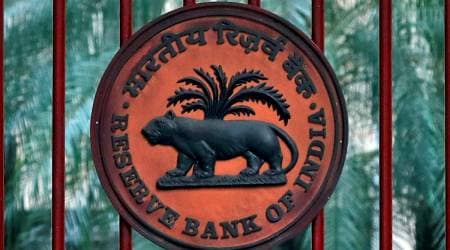To ease spends: UPI-credit link, rural bank home loans
[ad_1]
AS LOANS turn costlier with increasing interest rates, the Reserve Bank of India has tried to push growth while simultaneously providing relief to consumers by trying to push credit-led consumption of small-ticket items.
On Wednesday, the central bank decided to allow even credit cards to be linked to UPI (Unified Payments Interface). As of now, UPI could be linked only to savings and current accounts through users’ debit cards for facilitating transactions.
“It is now proposed to allow linking of credit cards on the UPI platform. To begin with, the RuPay credit cards will be linked to UPI. This will provide additional convenience to the users and enhance the scope of digital payments,” RBI Governor Shaktikanta Das said.
The move will give a push to credit culture for smaller items in urban and rural areas alike. “It is a game changer for the industry. It will provide a significant boost to overall credit card spends and off-take in the market. The neighbourhood kirana store where credit cards hitherto were not used will now find it economical to accept credit card payments through UPI,” said Murali Nair, President-Banking, Zeta, a banking technology company.
“Linking Rupay credit cards to UPI will add more avenues and convenience to customers,” State Bank of India Chairman Dinesh Khara said.
In another move that will generate jobs, make housing affordable and promote inclusive growth, the RBI permitted rural cooperative banks (RCBs) to finance residential real estate projects and doubled the limit on housing loans that cooperative banks can offer.
The limits for Tier-I and Tier-II urban cooperative banks have been revised from Rs 30 lakh to Rs 60 lakh and from Rs 70 lakh to Rs 1.40 crore, respectively. These limits were last revised for UCBs in 2011 and for RCBs in 2009.
For rural co-operative banks with net worth less than Rs 100 crore, the limits have been revised from Rs 20 lakh to Rs 50 lakh, and for other RCBs, the limits would increase from Rs 30 lakh to Rs 75 lakh.
The RBI has decided to allow RCBs – state cooperative banks and district central banks – to extend finance to commercial real estate – residential housing within the existing aggregate housing finance limit of 5 per cent of their total assets. This decision has been taken in view of the growing need for affordable housing and to realise their potential in providing credit facilities to the housing sector, the RBI said.
Economists feel that the move to enhance the limit of home loan for co-operative banks could lead to enhanced credit offtake by their customers and thus will push credit growth in smaller towns and semi urban areas.
[ad_2]
Source link














